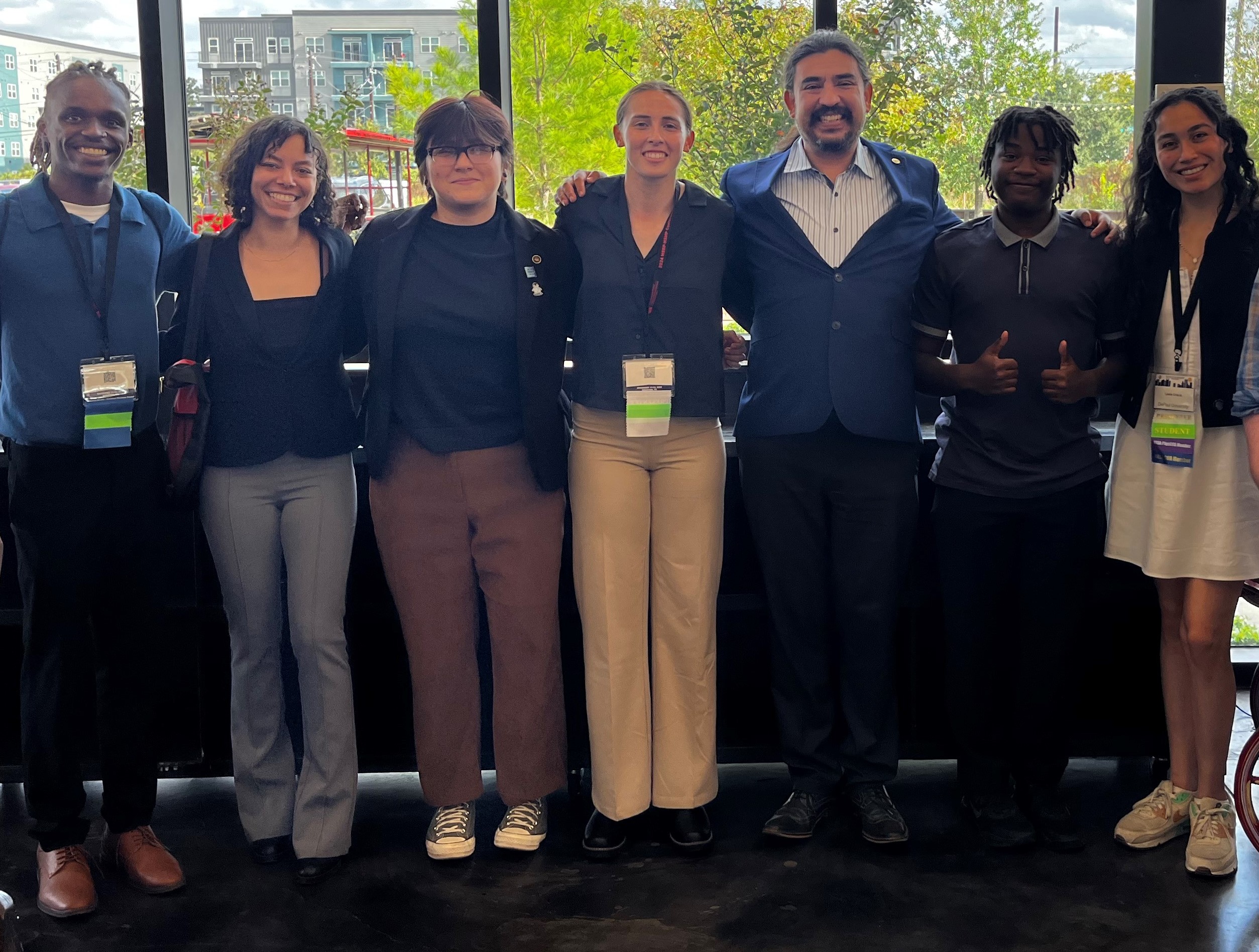National Society of Black Physicists-National Society of Hispanic Physicists Joint Conference 2024
We are proud to share that Kierra Davis, Joshua Edmonds, Vanessa Garcia, Leslie Gracia, Piere Joyner, Olivia Medina for their participation and presentations at this annual conference entitled "Merging Nuclei - Creating Stronger Forces". This dynamic, educational and impactful conference was the largest gathering of minority physicists in the United States. It provided an opportunity for the students to interact, engage and expand partnerships through exhibitions, panels, networking and educational sessions.

Congratulations to Michael (Misha) Romanov!
Michael Arkadi Romanov
DePaul University, USA
Announcing Misha as one of the 2024 Robert L. Snyder Student Travel Grant Recipient who is presenting at the Denver Xray Conference this week with Dr. Gabriela Gonzalez. His presentation is entitled "Collagen Degradation Investigation in Archaeological Second Metacarpal Bones Using Synchrotron Wide-Angle X-ray Scattering".
To honor the life and work of Robert L. Snyder, the International Centre for
Diffraction Data established the Robert L. Snyder Student Travel Grant. To continue Bob’s mission of cultivating future X-ray analysts, the awards offer support to enable graduate and undergraduate students to attend the Denver X-ray Conference.
Collagen Degradation Investigation in Archaeological Second Metacarpal Bones Using Synchrotron Wide-Angle X-ray Scattering
By: Misha Romanov*, W. Abramovich, G. Gonzalez Aviles, DePaul University, USA
J.-S. Park, Argonne National Laboratory, USA
S.R. Stock, Northwestern University, USA
Bones are frequently the only biological record of prior human populations, and the study reported
here examines the extent to which post-burial collagen degradation can be determined
noninvasively in ancient human bones. Ten-second metacarpal bones (mc2) recovered from an early
medieval cemetery at Greding, Germany, were studied with high-energy synchrotron small-angle X-
ray scattering (SAXS) and wide-angle X-ray scattering (WAXS or diffraction) at beamline 1-ID of the
Advanced Photon Source. The focus of this presentation is Rietveld refinement of the WAXS patterns,
specifically lattice parameters and crystallite size values of the different mc2. The crystallite sizes from
the WAXS data were compared to the intensity of SAXS D-period peaks, and the results were in
good agreement. Specifically, 4 of the 10 mc2 had crystallite sizes comparable to that in a non-altered
modern mc2; these samples all had comparable (and high) SAXS D-period peak integrated
intensities. For 6 of the 10 mc2, crystallite sizes were large compared to non-altered bone, matching the
absence of strong D-period peaks and indicating the presence of diagenetic changes and the loss of the
majority, if not all, of the collagen